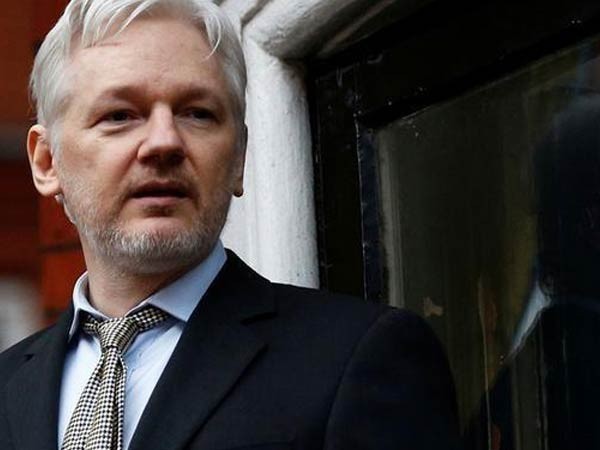
London: The UK on Friday (local time) approved WikiLeaks founder Julian Assange's extradition to the US where he faces espionage charges.
Assange's organisation marked the decision as a "dark day for press freedom," after UK Home Secretary Priti Patel signed the extradition order, reported CNN.
This is a dark day for Press freedom and British democracy. Anyone who cares about freedom of expression should be deeply ashamed," Wikileaks added.
A London court issued a formal extradition order back in April, leaving Patel to rubber-stamp his transfer to the US after a years-long legal battle.
The decision will likely see months more of legal wrangling as Jennifer Robinson, Assange's legal counsel, said Friday that an appeal would be brought and that the case could ultimately be taken to the European Court of Human Rights in Strasbourg.
In a Friday statement, Wikileaks asserted that Assange "committed no crime and is not a criminal," adding that he is a "journalist and a publisher" who "is being punished for doing his job."
The Home Office stressed on Friday that the UK courts have not found that extradition of Assange would be incompatible with his human rights.
"The UK courts have not found that it would be oppressive, unjust or an abuse of process to extradite Assange. Nor have they found that extradition would be incompatible with his human rights, including his right to a fair trial and to freedom of expression, and that whilst in the US he will be treated appropriately, including in relation to his health," it said in a statement announcing the order.
Assange has the right to appeal against Friday's decision within 14 days, it added.
Meanwhile, Assange's wife, Stella Moris, in a press conference said that the UK "should not be engaging in persecution on behalf of a foreign power that is out for revenge... that foreign power committed crimes which Julian put into the sunlight."
Assange is currently in the high-security Belmarsh Prison in London, where he has been held since being dragged out of the Ecuadorian embassy in London three years ago, reported CNN.
He is wanted in the US on 18 criminal charges after WikiLeaks published thousands of classified files and diplomatic cables in 2010. If convicted, Assange faces up to 175 years in prison.
His extradition has been the subject of numerous court dates since his arrest, which took place after Assange sought diplomatic refuge in the embassy for seven years.
Rights groups have expressed concerns over the US's indictment of Assange, saying it undermines freedom of the press.
"Allowing Julian Assange to be extradited to the US would put him at great risk and sends a chilling message to journalists the world over," Agnes Callamard, Amnesty International secretary-general, said in a statement Friday.
On Friday, Australia's Foreign Office issued a statement noting the UK decision to extradite Assange, who is an Australian citizen, adding, "We will continue to convey our expectations that Assange is entitled to due process, humane and fair treatment, access to proper medical care, and access to his legal team."
"We will continue to express this view to the governments of the United Kingdom and the United States," it said.